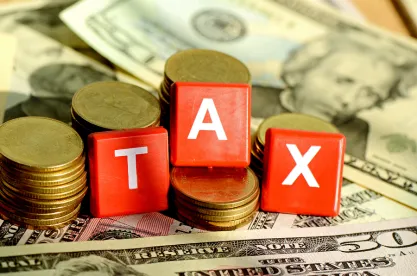On July 27, 2017, House Speaker Paul Ryan (R-Wis.) announced that the previously proposed Border Adjustment Tax (BAT) will not be included in the upcoming House tax reform effort. The announcement, which was made by way of a joint statement issued by Speaker Ryan, Treasury Secretary Mnuchin, Senate Majority Leader McConnell (R-Ky.), Senate Finance Committee Chairman Hatch (R-Utah), House Ways and Means Committee Chairman Brady (R-Texas) and National Economic Council Director Cohn, stated that—
While we have debated the pro-growth benefits of border adjustability, we appreciate that there are many unknowns associated with it and have decided to set this policy aside in order to advance tax reform.
By way of background, the concept of a BAT was originally rolled out in June 2016 in the House Republicans’ “A Better Way” publication (otherwise known as “the Blueprint”), which was intended as a means to encourage companies to manufacture their products in the United States. Generally, under a BAT scenario, the corporate income tax would not be assessed on worldwide income; rather, a U.S. company would pay the tax based on its domestic revenues minus its domestic costs—thus, the tax would be calculated on the place of production and sale of the goods (i.e., the destination). Both foreign and domestically produced products would be taxed, and the costs associated with any imported goods or supplies used in sales in the U.S. would no longer be deductive. At the same time, the BAT would not be levied on export sales at all.
Although only murky details were released about the BAT, it was speculated that a BAT could have increased taxes by almost 20% on goods imported into the United States, while offering significant tax incentives to U.S. companies supplying goods to overseas markets. Many in the trade industry also believed that the implementation of a BAT would likely be challenged by other WTO member countries as a prohibited subsidy under the rules of the General Agreement on Tariffs and Trade (GATT). Many industry sectors dependent on imports voiced their opposition to the BAT, including the textile apparel, footwear, computer and automobile industries whose supply chains depend on imports of raw materials and finished goods. The BAT proposal was also opposed by many in Congress, as well; thus, the decision to abandon the controversial BAT will also likely make it somewhat easier for Congress and the Trump Administration to move forward with an overhaul of the tax code.



 />i
/>i

